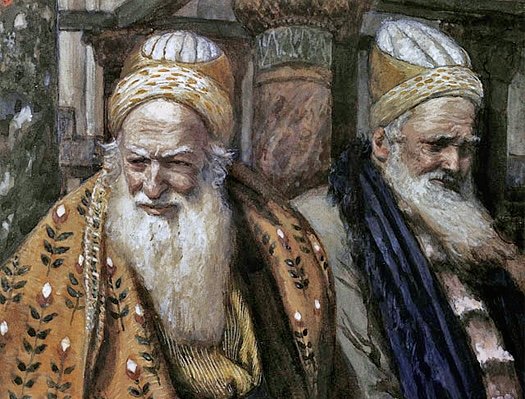
Jesus is in the garden of Gethsemane. He has just finished praying, and has now returned to his disciples, who have been sleeping instead of praying (as He’d instructed).
And while He was still speaking, behold, Judas, one of the twelve, came accompanied by a large crowd with swords and clubs, who came from the chief priests and elders of the people. Now he who was betraying Him gave them a sign previously, saying, “Whomever I kiss, He is the one; arrest Him.” And immediately Judas went up to Jesus and said, “Greetings, Rabbi!” and kissed Him. But Jesus said to him, “Friend, do what you have come for.” Then they came and laid hands on Jesus and arrested Him.
And behold, one of those who were with Jesus reached and drew his sword, and struck the slave of the high priest and cut off his ear. Then Jesus *said to him, “Put your sword back into its place; for all those who take up the sword will perish by the sword. Or do you think that I cannot appeal to My Father, and He will at once put at My disposal more than twelve legions of angels? How then would the Scriptures be fulfilled, which say that it must happen this way?”
At that time Jesus said to the crowds, “Have you come out with swords and clubs to arrest Me as you would against a man inciting a revolt? Every day I used to sit within the temple grounds teaching, and you did not arrest Me. But all this has taken place so that the Scriptures of the prophets will be fulfilled.” Then all the disciples left Him and fled.
(Matthew 26:47–56)
Sometimes it’s scarier to be peaceable than to fight.
When did the disciples flee?
Not when the mob first came to arrest Jesus.
No, they were willing to fight for their Messiah, His coming kingdom, and their places of honour in it. What a thrill they must have experienced when Peter drew first blood and cut off the servant’s ear!
But—what is Jesus doing?
Instead of becoming the aggressive whip-wielding man they’d seen in the temple, He heals the servant.
Only when Jesus chides them and doesn’t let them fight—only then do they flee.
Such a response was not an act of cowards, as some might paint the disciples to have been. They’d been all too ready to stand and fight.
But not fighting?
Perhaps, to them, this seemed more cowardly. Perhaps in that moment all their illusions about who Jesus was and what He would do came crashing down.
When are we most likely to flee?
- When we’re afraid
- When we’re ashamed
The Gospels do not record that fear propelled their flight.
What if their fleeing had more to do with shame than with fear? Shame at being disciples of a coward?
But—as I’ve seen countless times—love can overcome the flight response of shame. And so we have a few following Jesus after He’s arrested, hoping to see Him and see what happens to Him.
Because as much as their initial response was to flee, their more lasting, more thoughtful, slow-brain response was to trust and follow this Man. When the shame-induced threat impulse calmed down, they could recognize Jesus’ calm at the situation He was faced with. Was this really the response of a coward?
And so, they lived up to their designation of disciples—literally, “following learners.”
They followed Jesus right to Golgotha, and soon they would learn why He’d really come to Israel—to save them from so much more than the temporary tyranny of a human government.
NOTES










